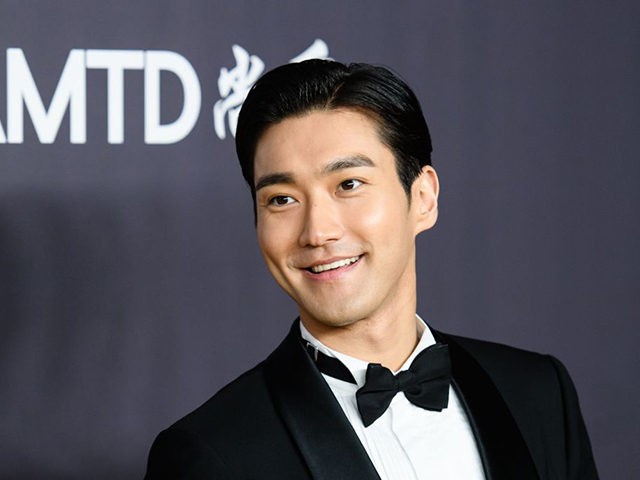Choi Siwon, a member of the Korean pop (K-pop) group Super Junior, was forced to issue an apology to Chinese fans for liking a tweet of a news article on Sunday featuring an interview with a Hong Kong protester.
Super Junior, and its Mandarin-language subgroup Super Junior-M, are extremely popular in China. Choi boasts about ten million more followers on the Chinese social media network Weibo than he does on Twitter, where he liked the interview. The Chinese Communist Party legally bans citizens from using Twitter, but Chinese state propaganda published stories attacking Choi and alerting his fans.
The Chinese government, through legions of allegedly independent “netizens,” regularly bullies celebrities and corporations if they step out of line from Communist Party doctrine, no matter how minor the infraction. The bullying, which often comes with economic coercion, reaches far beyond the borders of China, forcing international actors to bow before Beijing’s authority.
Choi is South Korean and, outside of charity work with the United Nations, has made little indication he is interested in politics. Choi is a vocal Christian, however, and has expressed a desire to become a missionary upon retiring from his singing career. China violently represses Christianity, which is growing exponentially in the country and allows Christian worship only through government-run churches.
According to the K-pop news site Soompi, Choi appears to have liked a tweet from the South Korean Chosun Ilbo newspaper featuring a translation of an interview Hong Kong protester Patrick Chow gave to CNN. In the interview, Chow, who suffered critical injuries after a police officer shot him during a protest, commits to continuing to protest against communism and warns the Chinese, “beliefs can’t be killed.”
Choi did not share the interview on Twitter or publicly make any statements about either the interview or Hong Kong generally. He has also made no statements about Hong Kong on Weibo, the Chinese-sanctioned outlet.
Hours after the Twitter like, alleged fans flooded Choi’s Weibo page demanding he resign from Super Junior. A Chinese fan page on Weibo announced it would shut down immediately, leaving 90,000 followers without content.
“Nothing and no one can shake our position. We will not make the slightest concession when it comes to patriotism,” the page said in a statement before shutting down.
The South China Morning Post collected some of the comments left on Choi’s page:
“You don’t know anything at all. Why did you even ‘like’ it?” read one top-rated comment on Choi’s page on Weibo.
“If you are really sincere in your apology, why don’t you put a statement on Facebook and Instagram? Don’t think that Chinese fans are all fools,” wrote another.
The Chinese communist propaganda outlet Global Times accused Choi in an article of “supporting” the Hong Kong protests by liking the tweet and fueled the fire by alleging that Chinese people would not accept Choi’s apology.
Choi nonetheless apologized after removing the like from the tweet.
“I saw what happened on Twitter caused some problems. As for my actions, I would like to express my wish that the violence and chaos can come to a peaceful end as soon as possible,” he wrote on Weibo. “Because this behavior caused a lot of controversy and has made people disgusted and disappointed, I express my most sincere apologies to everyone.”
Choi’s tweet following the release of Super Junior’s latest album, Time Slip, in October, likely resulting in pressure from his record company not to anger a market as lucrative as the Chinese Communist Party.
Choi launched a campaign with the United Nations last week as its newest UNICEF regional ambassador on children’s rights.
While not outspoken politically, Choi does discuss his Christian faith often, at one point referred to as “arguably K-pop’s most high-profile Christian singer.”
“In the future, I would like to become a missionary,” Siwon told CNN in a 2016 interview. “I’d like to go to countries where I have received much love as a musician and personally return all of that love.”
Choi has also performed Christian songs of praise during his tours.
Choi’s last tweet before the controversy reads, “I prayed for all of you. Be healthy, be happy, and be joyful under His grace and mercy.”
The Twitter controversy echoes a similar struggle between citizens of free countries and the Chinese government over Hong Kong. Last month, the National Basketball Association (NBA) fell into scandal after the general manager of the Houston Rockets, Daryl Morey, posted a tweet reading “fight for freedom, stand with Hong Kong.” The Chinese government canceled several game broadcasts and threatened to cut the deep financial ties it had created with the NBA if Morey did not apologize. Morey swiftly apologized and deleted the post.
The Chinese Communist Party has similarly silenced international fashion companies such as Givenchy, Versace, Gap, and Coach for designs that feature the map of China without territories it does not legally hold – like Taiwan, Hong Kong, and Macau – or for shirts that listed these territories as separate from China.

COMMENTS
Please let us know if you're having issues with commenting.